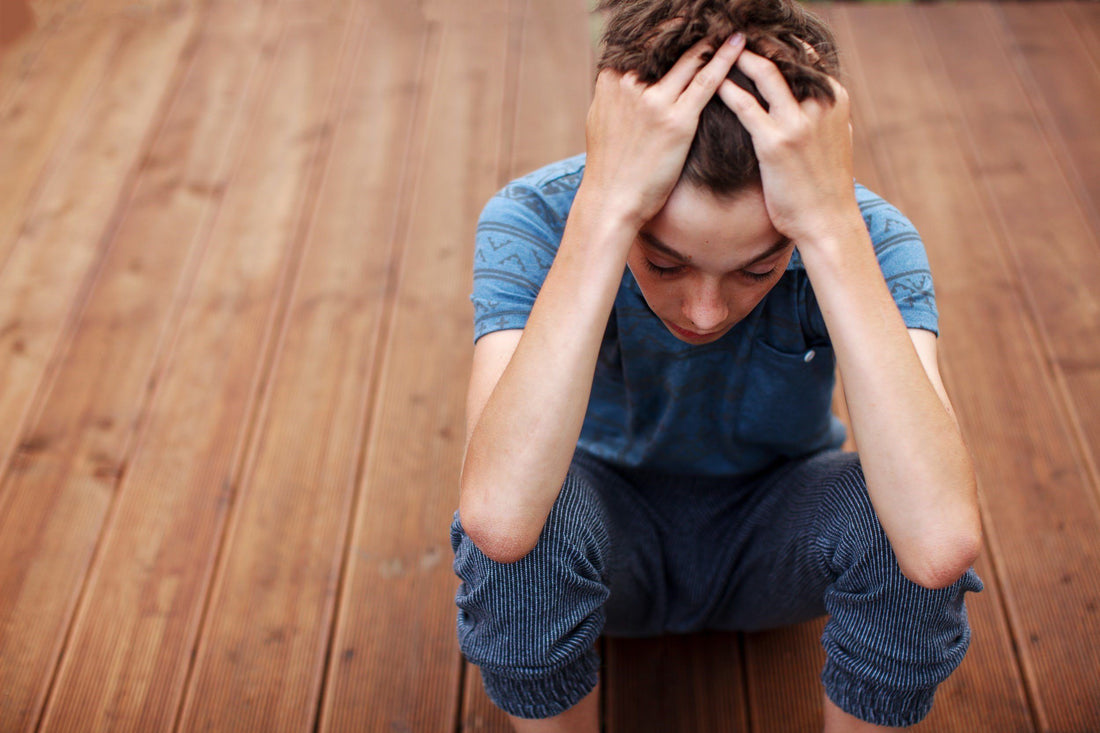If left untreated, children with anxiety disorders are at higher risk to perform poorly academically, miss out on important social experiences and engage in substance abuse. That’s why noticing anxiety early and offering support can be crucial for a child’s long-term development. If you are already aware of your child or teen’s struggle with anxiety, you may be wondering if their condition will get worse with age or improve over time. To prepare yourself and your child for the future, here are some ways anxiety may evolve over time.
Is Remission Possible?
Although generalized anxiety disorder (GAD) is often thought to be chronic and unrelenting, research shows that remission is possible. In a 2017 study by Kelly and Mezuk, the authors found that 41.1% of participants experienced full remission of GAD symptoms as they aged. It is important to note, however, that the study linked older age and higher income to the likelihood of full remission.
Does Age Lead to or Cause Remission?
Although the study showed a link between age and remission, Dr. Mezuk states that the results do not mean that increased age always leads to remission, only that it “likely represents, at least in part, the fact that someone who has lived longer has just had more years in which to remit from their condition.” This indicates what doctors have long said about anxiety disorders, that the focus should not be on finding a cure but getting the right support.
The Right Support Can Relieve Symptoms
Although every case is different, parents, teachers, and doctors can take many action steps to help children manage symptoms of anxiety. As children build a “toolkit” of methods to relieve their anxiety, they become better equipped as they age. Methods of support that have been linked to reducing both emotional and physiological symptoms of anxiety include:
Recommended Videos
● Exercise: The Mayo Clinic recommends 30 minutes of exercise a day for three to five days a week to “significantly improve” anxiety symptoms.
● Cognitive behavioral therapy (CBT): Research over more than 20 years has shown that CBT is one of the most effective therapies for reducing symptoms of severe anxiety. The therapy can include teaching children mindfulness techniques, which they can use to manage symptoms long-term.
● Proper nutrition: Encouraging your child to eat well can have profound effects on their anxiety. The gut-brain axis is increasingly important since a large percentage (about 95 percent) of serotonin receptors are found in the lining of the gut.
● Taking Brillia: By directly attacking the S-100 protein that the brain releases during anxious moments, Brillia focuses on addressing the root cause of attention and anxiety issues in children. Brillia is a holistic program offering guidance, tools, and tips on how to achieve all of these recommendations.
While more research is needed to know how anxiety evolves over time, teaching your child tools today can provide lifelong benefits. You may find that physicians or teachers will recommend putting your child on prescription medications, but whenever possible, consider starting with lifestyle changes and non-prescription options to see how effective they can be. There may not be a one-size-fits-all solution, but exploring options together is a great place to start.
Erica Garza is an author and essayist from Los Angeles. She holds an MFA from Columbia University and a certificate in Narrative Therapy. Her writing has appeared in TIME, Health, Glamour, Good Housekeeping, Women's Health, and VICE.








